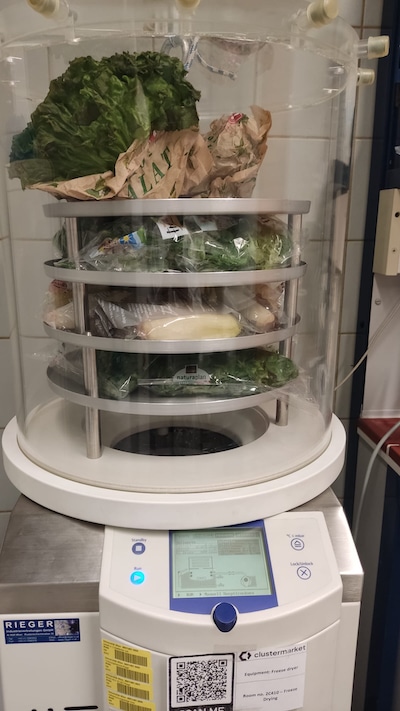
For the first time, researchers have found the presence of additives found in vehicle tires in leafy crops grown for human consumption.
While residues from other substances, such as pharmaceuticals and personal care products, have been detected previously, there has been no investigation into how pollution from car tires may affect food, the authors noted.
While vehicle tires are made in part by a natural material, rubber, they also utilize a blend materials, including synthetic rubber made from fossil fuels and chemicals to improve their durability, performance and safety. Tires are typically comprised of around 5% to 15% of chemical additives for performance enhancements.
But as the researchers noted, these chemicals can create pollution that leaches into environments and could impact our food.
“The toxicity of tire and road wear particles is related to their organic additives and associated transformation products,” Anya Sherman, first author of the study and a Ph.D. student at the University of Vienna’s Centre for Microbiology and Environmental Systems Science, said in a statement.
The researchers tested 28 commercial leafy vegetable samples they collected in four countries. They analyzed the samples for 16 different types of tire-derived chemicals using high-resolution mass spectrometry.

The “Setup Lab” shows the first step of the sample processing. The samples were purchased in grocery stores in Switzerland, then shipped frozen to the scientists. They were first freeze-dried (to remove water), and then extracted in the laboratory, before measuring them with liquid chromatography-mass spectrometry. Anya Sherman / Center for Microbiology and Environmental Systems Science
The results, which were published in the journal Frontiers in Environmental Science, revealed that six compounds found in vehicle tires were taken up by crops. These compounds included benzothiazole, 2-hydroxybenzothiazole, 1,3-diphenylguanidine, N-(1,3-dimethylbutyl)-N′-phenyl-p-phenylenediamine, N-Isopropyl-N-phenyl-4-phenylenediamine and N-phenyl-N-cyclohexyl-p-phenylenediamine.
The findings revealed relatively low concentrations of these additives, but the authors are still concerned about how they could affect humans that consume produce containing tire-derived chemicals.
“While the concentrations and daily intake are fortunately relatively low, additives from car tires are still found in food,” Thilo Hofmann a co-author of the study and professor at University of Vienna, shared in a statement. “That’s not where they belong.”
The study authors wrote that more research is needed to determine all the ways these chemicals are moving from roads to crops, how they may affect different crops and ultimately how consumption could affect human health.
The study adds to growing research on the way vehicle tires can potentially pollute environments. An analysis published in 2022 found that car tires can generate 2,000 times more pollution than a vehicle tailpipe. Tires can also shed microplastics, and researchers have been researching different materials to use in tires, including rubber made from dandelions.
The post Researchers Find Car Tire Additives in Leafy Crops appeared first on EcoWatch.
